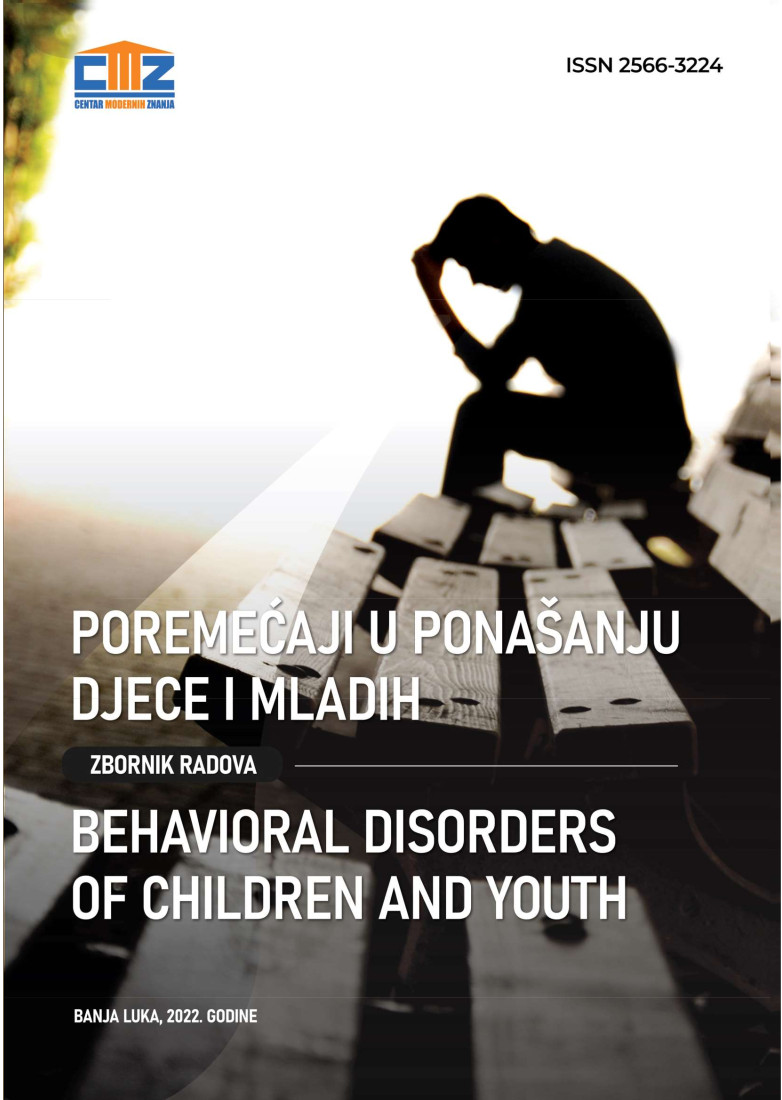NAVIKE KORIŠTENJA DRUŠTVENE MREŽE FACEBOOK-A I SAMOPOUZDANJE KOD SREDNJOŠKOLACA
HABITS OF USING THE FACEBOOK SOCIAL NETWORK AND SELF-CONFIDENCE IN SECONDARY SCHOOL STUDENTS
Author(s): Nera Zivlak RadulovićSubject(s): Social Sciences, Education, Psychology, Communication studies, School education, Psychology of Self, Behaviorism
Published by: CENTAR MODERNIH ZNANJA
Keywords: habits; Facebook; adolescents; self-confidence;
Summary/Abstract: People with low self-confidence may have a greater tendency to use social networks more often because it is easier for them to make social contacts in such a way, but this may also be a reason for development of internet addiction and the consequences of that addiction. The goal of the paper was to examine the habits of using the internet and social networks among secondary school students and possible presence of lower self-confidence. Work method: An anonymous online survey was completed by 34 respondents aged 16 to 19. The survey consisted of two groups of questions. The first group of questions was from a structured interview (Caci, Scrimi, 2017.) which examined habits of using the Internet and Facebook. The second group of questions was from the self-esteem scale (Rosenberg, 1965). The data were processed using frequency analysis. Results: Answers on the scale of habits of using social networks were classified as always, often, occasionally, rarely, never When interrupted in Facebook activities, 11.8% of respondents always get upset and 17.6% often. Neglecting daily activities due to Facebook is marked as often by 5.9% of respondents and occasionally by 17.6% of them. 11.8% of respondents always stay on Facebook longer than they planned, and often 17.6% of them. When asked if they occasionally hide or defend their activities on the Internet, 2,9% of respondents said always and 5,9% of respondents said often. Reduced sleep time due to Facebook activity is often experienced by 20.6% of respondents and always by 8,8%. Regarding the statement that they think life is boring without Facebook, 8,8% of respondents replied often and 2,9% of respondents replied always. When it comes to Rosenberg's self-esteem scale, it was found that low self-esteem is present in 20.6% of respondents. Conclusion: In this pilot survey, which included a small sample of respondents, we confirmed that in a certain percentage of secondary school students there are symptoms which point to a frequent use of the Facebook in the direction of the development of addictive behavior and also a certain representation of low self-confidence which can be correlated. It is necessary to conduct a larger study of the population of secondary school students and planning of preventive activities in our environment.
Journal: DRUŠTVENE DEVIJACIJE
- Issue Year: VII/2022
- Issue No: 7
- Page Range: 582-592
- Page Count: 11
- Language: Bosnian, Croatian, Serbian

